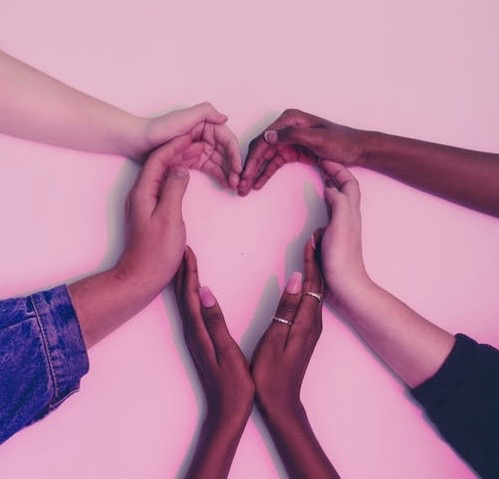
by CHRC | Jun 24, 2020 | Diversity, Equity, Inclusion, Wage Increases
By Margaret Jungels
If we’ve learned anything the past few months, it’s that many of our lowest-paid workers are essential to keeping not only the overall economy, but also our individual households running. We rely on grocery store clerks, delivery drivers, caregivers, and cleaners in stores, hospitals, and nursing homes to keep our families fed and safe. And yet, in many states, these essential workers are paid at rates so low they could work full-time and still qualify for SNAP benefits. The federal minimum wage is $7.25 an hour and hasn’t increased since 2009. In our gut, most of us understand that the minimum wage should be increased for reasons of fairness.
But there are reasons beyond fairness to increase the pay of these essential workers. A review of nursing home data shows that higher minimum wages lead to better quality of care, and even reduced mortality rates. “It appears that with better pay, jobs in nursing homes became more attractive, so employee turnover decreased. Patients benefited from more continuity in their care.” Studies also indicate that, across industries, employee performance improves as wages rise. Increased quality, reduced turnover, and better performance? So, it seems that not only is increasing low wages the fair thing to do, it’s the right business decision as well. Read More Here

by CHRC | Jun 18, 2020 | Leadership
Sixty years ago this fall, two television shows premiered on American screens that featured single fathers. In 1960, of course both fathers were created as widowers.
After you wrap your mind around the fact that Opie is now a senior citizen, it is interesting that American popular culture has had two lasting images of single dads who had to do the mothering and the fathering. Aunt Bee and Uncle Charlie were around for a lot of the after school snack banter, but whether you watched in prime time or reruns, the lingering memories are the heart-to-hearts that these dads had with their sons about life, death, girls, and becoming men.
It’s probably not surprising that one of those TV sons went on to be a pretty good father himself, as well as a prominent director. In turn, he produced another director who has a brand new film debuting: Dads.
This heartwarming interview from last Sunday seems to be a nice way to wish a Happy Father’s Day to all those folks out there who father in oh-so-many-ways. Watch it here

by CHRC | Jun 12, 2020 | Diversity, Equity, Inclusion, Leadership, Work Place
Obviously that it’s hard.
It all starts with understanding. And understanding begins with listening. We’ve been doing a lot of listening, a lot of reading, a lot of absorbing. There is a lot of listening, reading, and absorbing still to do before this country reaches better understanding.
Here are three articles that we think might be helpful.
The first is from a managing director at Goldman Sachs who has opened up about his experiences as a black man; perhaps because he feels like people are finally listening. In 2011, Frederick Baba had an incident with the police because he “matched the description of an individual who had reportedly stolen from a residence in the area. The description was of a black male in shorts and a T-shirt, with no other details. No color for either article of clothing, and in a city with just under one million black people, I was obviously the culprit.”
The second is an article from the Harvard Business Review about what makes a good listener. Jack Zenger and Joseph Folkman describe good listeners being more like trampolines rather than sponges. “[Good listeners] are someone you can bounce ideas off of — and rather than absorbing your ideas and energy, they amplify, energize, and clarify your thinking. They make you feel better not merely passively absorbing, but by actively supporting. This lets you gain energy and height, just like someone jumping on a trampoline.”
The third is a letter from Tim Ryan, US chair and Senior Partner at PwC, outlining the firm’s continued steps to addressing the injustices that too often occur to Black Americans. Ryan states, “It is my responsibility as a leader to not only stand with [Black colleagues] against racism to condemn these killings, but to use my privilege to be a part of the solution and take action – to help dismantle the racism and injustice that has become so pervasive in our society.” From the time Mr. Ryan co-founded the CEO Action for Diversity and Inclusion, PwC lost an employee, Botham Jean, to mistaken identity and police violence, PwC has gone way beyond a fancy ad campaign and is committing their people and hours—and applying peer pressure to other corporations to do the same.
I can’t help but think of the lyrics to the Nick Lowe song that Elvis Costello made famous. The song asks, “So where are the strong and who are the trusted? And where is this harmony, sweet harmony?” Perhaps if we all do our homework, we can be strong and the trusted for one another and bring some of the much-needed harmony to one another, our workplaces, and our world. Read More Here

by CHRC | Jun 10, 2020 | Diversity, Equity, Inclusion, Leadership, Work Place
Imagine running a marathon. After crossing the finish line, you’re expected to go straight to the office for the day and lead a meeting or present a new proposal to your company. You’d be exhausted—physically and mentally drained. It sounds crazy not to be able to rest and catch your breath after such a daunting and strenuous task.
And yet, this is exactly what many companies are asking of their Black employees. Already overwhelmed and emotionally exhausted, many are often asked to lead the charge against racism. In a recent Fortune commentary, Najoh Tita-Reid, a senior executive of marketing reinvention at Logitech, urges that “while this is indeed a unique moment, the responsibility of dismantling systemic racism must not be placed solely on black employees by asking them to fully lead diversity and antiracism efforts.”
Tita-Reid encourages non-Black leaders to accept responsibility to lead the charge, rather than asking Black employees and leaders—who might already be burnt out. She suggests a few ideas to protect the emotional wellbeing of Black peers, while actively tackling racism in the workplace. Don’t expect Black co-workers to teach you all about race issues; they carry this burden every day. It is your job, as their coworker/boss/peer, to do some emotional heavy lifting, educating yourself on these issues and how to best become a good ally.
Equally important is being respectful of Black colleagues who don’t want to discuss race issues. Once you’ve completed your marathon for the day, you may have no interest in talking about running for a while. Are you suggesting another 5K at the end of the day, or are you handing out Gatorade at the finish line? Read More Here




